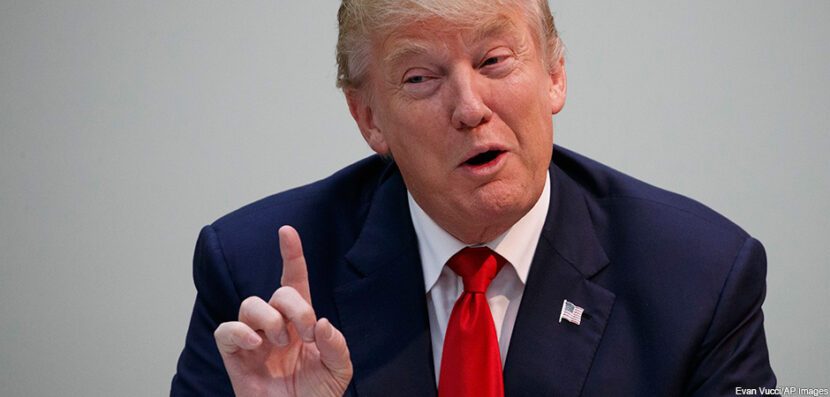
U.S. Elections and the Peaceful Transition of Power
The third and final presidential debate took place on October 19 in Las Vegas, Nevada, between Democratic candidate Hillary Clinton and Republican candidate Donald Trump. Towards the end of the debate, moderator Chris Wallace of FOX News commented on Mr. Trump’s allegations of fraud in the election process, and asked him if he would accept the outcome of the November 8 election. Mr. Trump refused to answer, saying that he would need to wait and see what the results were before deciding whether or not to accept them. Mr. Trump’s answer was significant because it marked the first time in U.S. history that a major party’s candidate for president has publicly questioned the legitimacy of our democratic elections.
A Democratic Tradition
One of the hallmarks of democracy is the ability to transfer power peacefully between one president or political party and another. This unwritten tradition dates all the way back to 1797, when outgoing first president George Washington ceded power to incoming second president John Adams. When Thomas Jefferson, a Democrat-Republican, became the third president in 1800, it represented the first time that presidential power switched hands from one political party to another. Both transitions occurred peacefully, and without any breakdown in the democratic election process.
More recently, the 2000 race between Vice President Al Gore and George W. Bush was so close in Florida that a mandatory machine recount was required. Gore also requested manual recounts in four traditionally Democratic counties. However, Florida required that the manual recount be completed in seven days. Several counties could not complete their recount in time. Eventually, the case went all the way to the Supreme Court (Bush v. Gore). The Court declared that the Florida deadline would stand, which made Bush the winner by 537 votes (0.009% of votes cast). Though many people were dissatisfied with the outcome, Gore called Bush the day after the Supreme Court’s decision to concede the election, and encouraged his supporters to stand behind their new president and move forward together as a united nation.
Why It Matters
This peaceful transition of power without violence or military coups is one of the things that makes the U.S. democratic system unique. When Mr. Trump rejects the election process, he causes people to doubt the system as a whole. Saying that elections are rigged encourages people to believe that their government is actually working against them. This often happens in new or “weak” democracies, in which political leaders erode popular faith in democracy for their own personal gain. In both Thailand or Egypt, for example, the public demanded that the military step in to remove a leader that they didn’t believe was legitimate. Often, this kind of violent dissent destroys the democracy altogether.
If Mr. Trump refuses to accept the outcome of the upcoming election, it could have devastating consequences for the country. When Kenyan elections were disputed by a rival political party in 2007, widespread violence followed. However, even if Mr. Trump decides to accept the outcome without complaint, it is possible that he could have already damaged the democracy just by expressing his lack of faith in the election process. In South Africa, for example, after a losing politician questioned the legitimacy of the election just to save face, political violence and riots broke out that killed two people. Mr. Trump’s behavior could also encourage future losing candidates to reject election outcomes, further eroding the democracy.
Ironically, it is possible that Mr. Trump’s words may have done the greatest damage to his own political career. According to a 2012 survey by the American National Election Study, people are less likely to vote when their faith in the political system has been weakened. By casting doubt on the U.S. election process, Trump is unwittingly encouraging his own supporters not to vote on November 8, causing even greater damage to his already struggling campaign.


